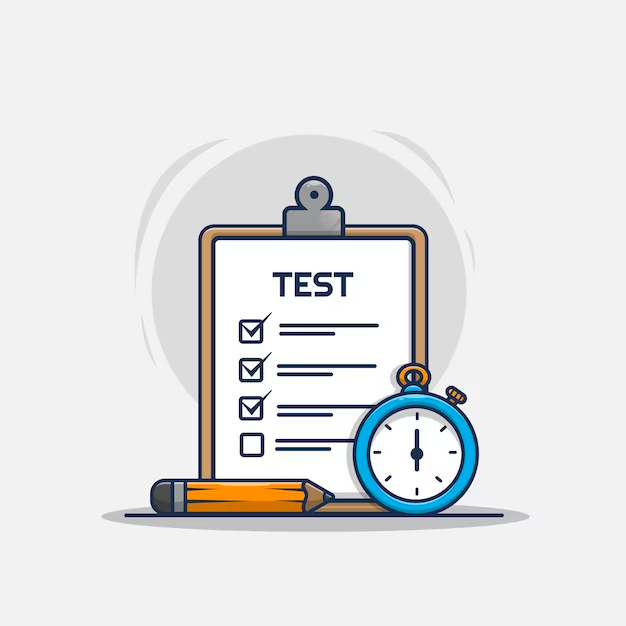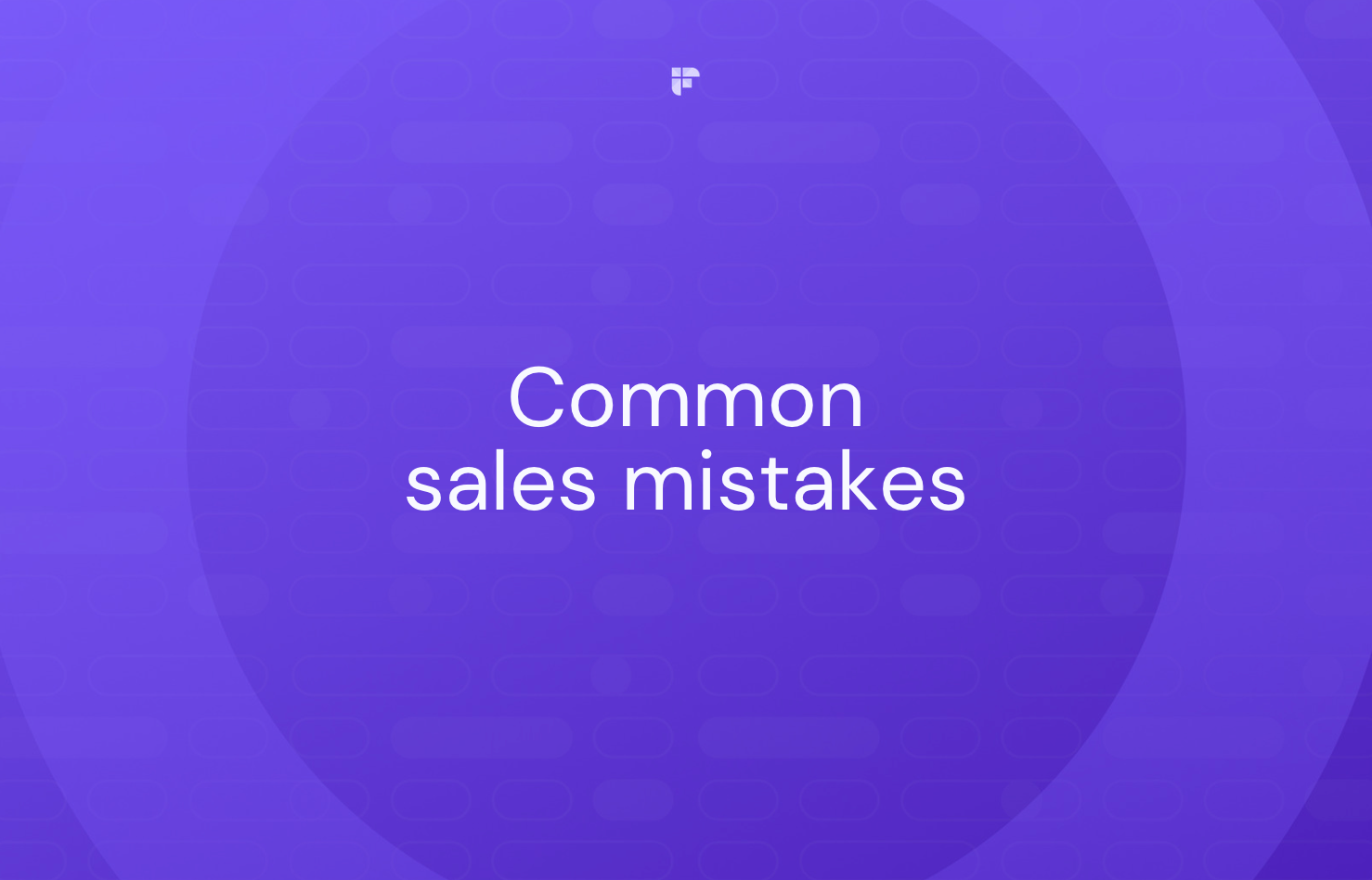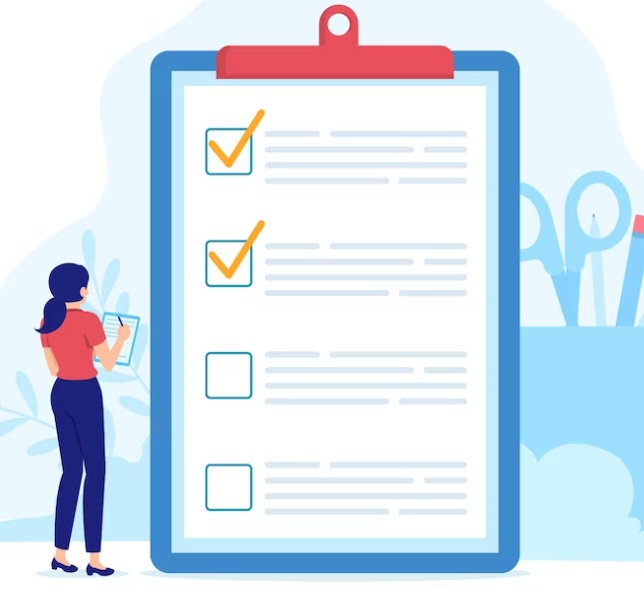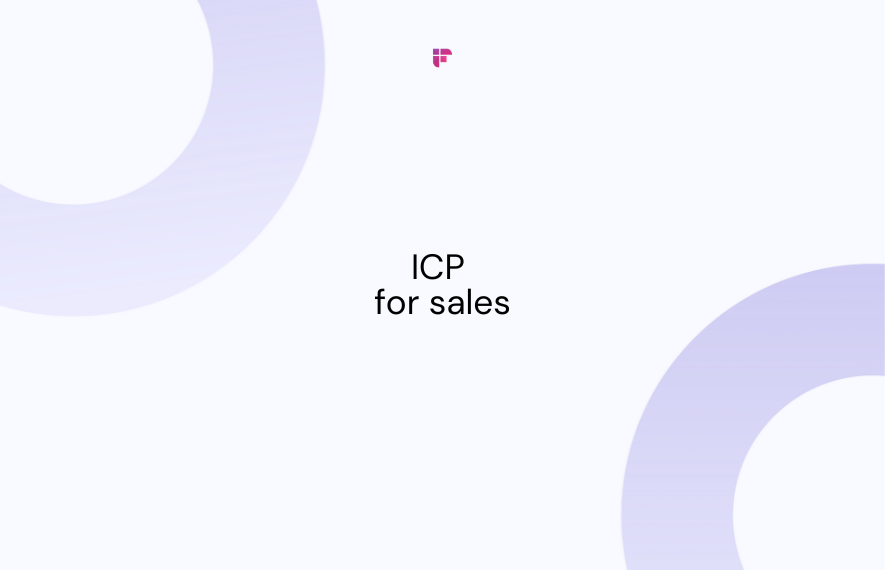The ideal customer profile or ICP in sales is important—buyers don’t like cookie-cutter messages. In fact, more than 50% of buyers expect businesses to send them personalized offers.
So, how do you create ICP in sales? How are they different from buyer’s personas?

In this article, we’ll answer these questions and more. You’ll also learn how to create revenue-generating sales ICPs and implement them to drive up those all-important conversion rates.
Table of contents:
- What is an ICP in sales?
- How is ICP different from buyer persona?
- How to create a sales ICP?
- Benefits of creating sales ICP
What is an ICP in sales?
An Ideal Customer Profile (ICP) is like a sketch of your ideal customers. It describes an individual or another business most likely to benefit from and purchase your products or services.
ICP in sales represents who your customers are, what they want, and why they need your products or services. The right ICP helps you tailor your sales emails, demos, pitches, and proposals to address the customer's needs and desires. It enables you to narrow your target market and focus on only those customers with the highest intent to buy from you.

An ICP is based on factual data and factors like:
- Industry
- Company size
- Revenue
- Location
- Job title
- Pain points
- Goals
- Budget
- Decision-making process

How is ICP different from buyer persona?
It’s not uncommon to confuse ICP with a buyer persona. While they share the goal of understanding your target audience, their scope and focus are vastly different.
A buyer persona is a fictional representation of an individual customer that captures their personal characteristics, motivations, and buying behaviors. On the other hand, an ICP is an aggregate representation of your ideal customers as a group based on shared characteristics and needs.

To illustrate the difference, let's compare the two:

How to create a sales ICP?
Here are six steps you can follow to create a compelling sales ICP:
- Start with your existing customer data
- Conduct market research
- Define your final result
- Test your ICP
- Refine your ICP
- Validate your ICP
1. Start with your existing customer data
The best starting point for creating your sales ICP is to analyze your existing customer data. It is a goldmine of information that can reveal patterns and commonalities among your most successful and satisfied customers.
Begin by conducting a thorough analysis of data from your CRM tool. Look for critical attributes and characteristics that consistently appear among your top-performing customers.

By delving into this data, you can start identifying trends and connections that will help shape your ideal customer profile. Look for similarities in:
- The challenges they face
- The outcomes they desire
- The specific benefits they seek from your products or services
Let’s say you discover that 7 out of your top 10 customers are mid-sized companies facing a problem of ineffective communication during meetings.
Now, dig deeper into this data to uncover the cause of this issue. Ask questions like:
- Is there a lack of meeting agenda or structure?
- Are participants struggling to convey their ideas and thoughts effectively?
- Are action items being tracked and followed up?
💡 Fireflies Tip
Fireflies records and analyzes your sales meetings to help you capture key insights, action items, and follow-ups. It also gives insights into your conversation, like speaker talk time, conversation sentiment, longest monologue, silence duration, etc. With Fireflies, you can interact more effectively with your prospects and increase your chances of closing the deal.
Understanding these nuances will enable you to craft targeted offers addressing their needs.
Additionally, look at the outcomes your top customers desire. Are they seeking improved productivity, streamlined collaboration, or better decision-making? Answering these questions will give insights into your customers' desires, pain points, and expectations.
2. Conduct market research
Next, look beyond your customer data and the broader market landscape. This is where market research comes into play, acting as your compass to navigate the ever-changing currents of customer preferences and industry trends.

Understand your market by:
a. Reaching out to potential customers
Conduct surveys, interviews, or focus groups to better understand their pain points, needs, and expectations.
How will this research help you?
It will reveal the human side of your customers—their motivations, desires, and challenges. Listen to their stories firsthand and uncover the underlying reasons behind their decision-making processes.
b. Quantifying your data
Be specific in your market research. To paint a complete picture, dive into statistical data and industry reports to uncover:
- Trends
- Market size
- Competitor analysis
- Untapped opportunities
- Customer behavior patterns
For example, instead of saying your market size is huge and your biggest market is the US, say your industry’s Total Addressable Market is $500 million, and the US contributes 60%.
Being specific provides context, helps you grasp the bigger picture, and shapes your sales ICP.
Remember, market research is an ongoing process. As markets evolve and customer preferences shift, you must stay attuned to the pulse of your industry. Continuously gather feedback, monitor market dynamics, and adapt your ICP accordingly.
3. Define your final result
Once you have collected and analyzed your existing customer data and conducted market research, it's time to define your Ideal customer profile (ICP).
Think about the problems your customers encounter and the outcomes they yearn for. Dive into the emotions they experience when seeking a solution, and reflect on the benefits they hope to gain from your products or services.

Instead of viewing your final result as a cold, analytical summary, think of it as a story about your customer's journey. Each attribute and characteristic you identify should contribute to painting a comprehensive and vivid portrait of your ideal customer. Infuse it with nuances and details that make them feel like real people with real needs.
Let’s take an example of a software company that offers features like website, inventory, and order management to e-commerce platforms. They want to target small e-commerce companies to expand their business.
Here’s what the company's sales ICP would look like:

4. Test your ICP
Once you have defined your ICP, it's time to test its effectiveness. Select a subset of your existing customers or potential leads who fit the profile and engage with them.
Monitor their response rates, conversion rates, and overall satisfaction to evaluate how well your ICP aligns with their needs.

During the testing phase, pay attention to any emerging patterns or trends. It could be an increase in response rate, webinar show rate, or even inbound form submissions.
5. Refine your ICP
Based on the insights gained from testing, refine your ideal customer profile as necessary. Look for opportunities to fine-tune the criteria and attributes that define your target audience.

Here are some strategies to help refine your ICP:
- Learn from successful and unsuccessful customer interactions.
- Consider involving others from customer support and marketing teams in refining your ICP. Their perspectives and on-the-ground experiences can provide valuable insights.
- As you gather more data, analyze market trends, and gain further insights, be open to adapting and adjusting your ideal customer profile to stay aligned with the evolving needs of your target audience.

6. Validate your ICP
Validate the accuracy and effectiveness of your sales ICP. It involves gathering additional data and feedback to ensure the defined characteristics and criteria correctly represent your target audience.

Here are some steps you can follow:
- Engage with your target audience directly to validate if your ICP aligns with their real-world experiences.
- Monitor and compare conversion rates of leads and prospects within your ICP versus those outside of it. Higher conversion rates among your target audience indicate that your ICP resonates with your audience.
- Evaluate and refine your ICP to be in sync with business goals, adapt to the ever-changing marketing and competitive landscape, and effectively cater to the evolving needs of your customers.
Benefits of creating sales ICP
Improved targeting: Knowing your ICP helps focus your marketing and sales efforts on prospects more likely to convert.
Higher conversion rates: When you focus on your ICP, you're more likely to communicate in a way that resonates with your prospects.
Increased customer satisfaction: Delight and engage customers by tailoring your product or service to meet their specific needs.
Greater customer retention: Customers who feel understood and well-served are more likely to remain loyal to your brand. Higher customer retention means higher ROI, as only a 5% increase in customer retention can result in a 25 – 29% increase in revenue.
Cost-effective marketing: By focusing your efforts on those most likely to purchase, you will likely see a higher return on your marketing and sales investment.
Final thoughts
In the vast realm of sales, where success hinges on finding the perfect match between your offerings and your customers, the power of an Ideal Customer Profile (ICP) shines through.
With your sales team armed with a well-crafted ICP, you’ll become a master of precision, directing your efforts toward the prospects most likely to embrace your solutions with open arms.
So, take the time to craft your sales ICP with caution, for within its boundaries lies the key to unlocking a world of sales triumph.









